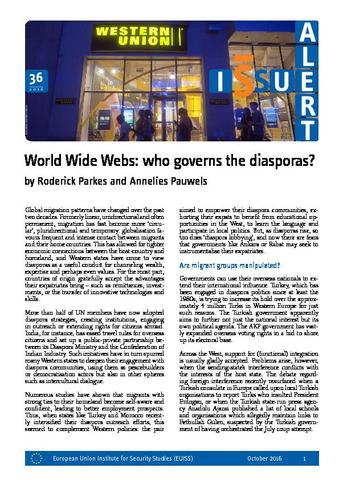You are here
World Wide Webs: who governs the diasporas?

Global migration patterns have changed over the past two decades. Formerly linear, unidirectional and often permanent, migration has fast become more ‘circular’, pluridirectional and temporary: globalisation favours frequent and intense contact between migrants and their home countries. This has allowed for tighter economic connections between the host-country and homeland, and Western states have come to view diasporas as a useful conduit for channeling wealth, expertise and perhaps even values. For the most part, countries of origin gratefully accept the advantages their expatriates bring – such as remittances, investments, or the transfer of innovative technologies and skills. More than half of UN members have now adopted diaspora strategies, creating institutions, engaging in outreach or extending rights for citizens abroad. India, for instance, has eased travel rules for overseas citizens and set up a public-private partnership between its Diaspora Ministry and the Confederation of Indian Industry. Such initiatives have in turn spurred many Western states to deepen their engagement with diaspora communities, using them as peacebuilders or democratisation actors but also in other spheres such as intercultural dialogue.